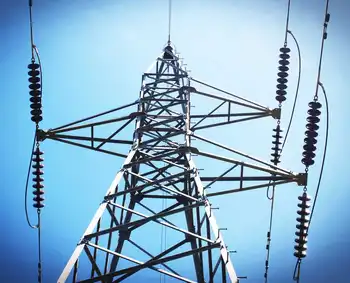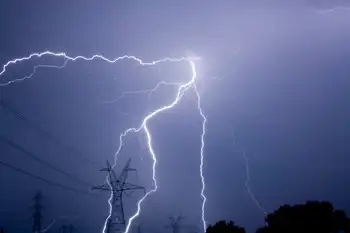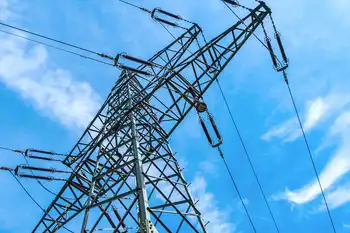Kentucky utilities hope to build new power lines over 700 landowners property
BOWLING GREEN, KENTUCKY - A meeting Aug. 30 could reveal much broader opposition to a utility's desire - and necessity - to build new lines over 700 landowners' property.
Warren Rural Electric Cooperative Corp. and East Kentucky Power Cooperative are waiting for approval from the Kentucky Public Service Commission and compliance with the National Environmental Protection Act to build new and upgrade some existing power lines to connect the two systems.
The upcoming meeting, which will be at the Carrol Knicely Center and organized by the PSC, will allow those landowners to express concerns and question the proposed corridors for the new lines. WRECC and EKPC will attend.
"It's open mic," said Mary Jane Warner of EKPC. "Attorneys don't ask questions and people aren't sworn in.
Depending on how it goes, we make ourselves available to answer questions, but the focus is on the people and their questions to the commission."
Nick Comer of EKPC said they will likely give a brief presentation on the project but their participation is based largely on what the PSC wants.
"Whatever they want us to do we're gonna do," he said. "The purpose is for the public to enter their comments on record with the PSC.
"I think we may be available after the meeting for comments if the PSC requests we do so. If that's the case, then we will certainly be there to answer any questions they have."
WRECC and EKPC expect that convincing the 700 landowners that stringing power lines across their properties will be difficult. But Gary Dillard said the new lines are necessary.
"To be competitive in Kentucky, we needed to change," Dillard said. "Our best option was (EKPC), but in order to use them we need new transmission lines."
Some have asked why WRECC decided to go with EKPC when Tennessee Valley Authority was able to provide the power necessary for WRECC customers.
Dillard explained that the new partnership would provide the cooperative more decision-making options.
"Two years ago, TVA increased their rates by 712 percent," Dillard said.
"We didn't have a say-so in that increase.
They plan on increasing rates again another 712 percent this October. By joining (EKPC), a cooperative like us, we will have a seat on the board of directors and will be able to have a say in rate issues. Even with the cost of upgrades and new transmission lines, we still in the long run will come out better by choosing (EKPC)."
In anticipation of the PSC's decision and to gather public input, WRECC and EKPC have held seven open houses in the regions affected by the proposed corridors and upgrades. Of the 700 property owners, only an average of 20 percent have attended the meetings. EKPC said a good turnout would have been 50 percent. But the low turnout doesn't mean landowners aren't continuing to learn about the effects the new corridors may have, and some have begun to take action.
Carroll and Doris Tichenor own 300 acres in the Big Bend/Logansport area of Butler County. The proposed Wilson/Aberdeen corridor for new lines runs through their farm, essentially cutting it in half, Doris Tichenor said.
The Tichenors have hired an attorney and say that four sites on the National Register of Historic Places are threatened by the proposed corridor.
"All four of the sites are in the path of the power line," Tichenor said. " It will not be possible to use their intended corridor without impacting all four of the sites."
Tichenor said she's confused as to why the corridor was selected when there were alternative routes along existing lines that didn't impact her farm.
Comer said EKPC is aware of the Tichenor property and of the historical sites and is evaluating the environmental impact. Since EKPC is receiving financing from the Rural Utility Service, it is required to comply with the National Environmental Protection Act by performing a thorough study of the impact the corridor may have on farmland, wetlands, historical and archaeological sites and indigenous species of animals.
"It's called an environmental assessment," he said. "We have a staff of biologists who conducts these studies. This particular one we've hired a consultant. We expect to file that report next spring."
Mac Newberry initially felt like the new lines were a necessary evil and that cooperating with the utilities was simply being a good neighbor. But when Newberry did some research on the effects of low- frequency magnetic fields caused by power lines, he began to have a change of heart.
"I found that some effects may be everything from stopping pacemakers, to leukemia to miscarriages in the first trimester," he said. "And anything relating to humans can be also done to cattle and other livestock and plant life."
Newberry keeps 500 acres of his land for conservation and wildlife. But he also farms a good deal of it.
"I'm not a nature nut," he said. "I think people come first. The corridor they picked is going to go right through some of the best farmland in Kentucky for cattle and crops."
Newberry doesn't understand the need for the new lines.
"They're gonna spend millions of dollars and will be interfering with a lot of people's lives and will be putting a lot of people at risk."
Newberry said his parents both died of illnesses that he feels may have been brought about by the effects of a power line near their farm home. His father developed leukemia and shortly after he passed away his mother was diagnosed with fibrosis of the lungs. Newberry said doctors weren't able to discern what the cause was, but said something was mysteriously irritating her lungs.
Newberry said through his own research, he discovered that low- frequency magnetic fields produce an ionizing particle that irritates the lungs. He said for the lines to be safe, they need to be buried.
Comer said there has been extensive research done on the effects of power lines.
"It appears that there is no correlation between health impacts and electromagnetic fields," he said. "It's something we follow very carefully and follow the latest research. We have extensive materials on this if someone wants to learn more about it. At this time, there is nothing to indicate there is any correlation between those fields and the health impacts."
The PSC meeting will be at 6 p.m. Aug. 30 at the Carrol Knicely Center.
Related News

EDF and France reach deal on electricity prices-source
PARIS - State-controlled power group EDF and the French government have reached a tentative deal on future nuclear power prices, a source close to the government said on Monday, ending months of tense negotiations.
The two sides agreed on 70 euros per megawatt hour (MWH) as a reference level for power prices, the source said, cautioning that details of the deal are still being finalised.
The negotiations aimed to find a compromise between EDF, which is eager to maximise revenues to fund investments, and the government, keen to keep electricity bills for French households and businesses as low as possible.
EDF declined to…




